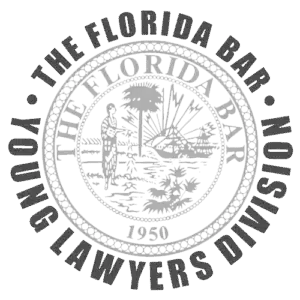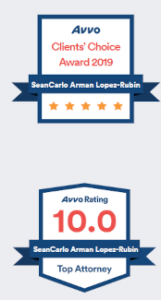Internet Crime Defense Lawyer in St. Petersburg, FL
Florida Attorneys
Serving You and The State of Florida
Law enforcement seized your devices. Investigators called about your online activity. Federal agents knocked on your door, asking about transactions you made months ago. Internet crime allegations move fast, and your response in the first 48 hours can inform the trajectory of your entire case.
Lopez Law Group defends clients facing state and federal internet crime charges across Pinellas and Manatee Counties. Our St. Petersburg criminal defense practice handles cyberstalking, identity theft, unauthorized computer access, online fraud, and the most sensitive digital allegations that threaten your freedom, career, and future.
Criminal defense consultations are free and confidential. Call (727) 933-0015 before you speak with investigators.
Table of Contents
- Key Takeaways for Internet Crime Cases in St. Petersburg
- Why Choose Lopez Law Group for Internet Crime Defense in St. Petersburg
- What Counts as an Internet Crime in Florida?
- Penalties for Internet Crime Convictions in St. Petersburg
- Available Defenses in St. Petersburg Internet Crime Cases
- What Should I Do If Cybercrime Investigators Contact Me?
- FAQ for Internet Crime Cases in St. Petersburg
- Facing Internet Crime Allegations in St. Petersburg? Act Now
Key Takeaways for Internet Crime Cases in St. Petersburg
- IP addresses, forensic timestamps, device seizures, and metadata analysis dominate internet crime prosecutions—your attorney must understand how digital evidence works and where investigators make mistakes
- Florida prosecutes revenge porn, cyberstalking, and many fraud cases in Pinellas County courts, while the U.S. Attorney’s Office in the Middle District of Florida handles hacking, child exploitation, and large-scale identity theft schemes
- Pre-charge representation can prevent formal charges, negotiate device return, and protect constitutional rights during searches and interviews when law enforcement pressure is highest
- Internet crime convictions trigger sex offender registration for certain offenses, professional license loss, immigration consequences for non-citizens, and permanent reputational damage
- Once you give permission for police to examine your phone, computer, or cloud storage, anything they find becomes admissible evidence, even if the search uncovers unrelated crimes or material you forgot existed on your devices
Why Choose Lopez Law Group for Internet Crime Defense in St. Petersburg

Local Court Experience That Matters
We practice daily in the Pinellas County criminal courts, where your case will be heard. Our attorneys know the prosecutors in the State Attorney’s Office cybercrime divisions, understand how local judges handle digital evidence disputes, and recognize patterns in how St. Petersburg police and Pinellas County Sheriff’s Office investigators build internet crime cases. When federal charges arise, we defend clients in the Middle District of Florida courthouse in Tampa.
Technology-Focused Defense Strategy
Digital forensics, IP address attribution, metadata analysis, and device searches require attorneys who speak the language of technology. We work with forensic experts, when needed, who challenge prosecution evidence, identify investigative errors, and explain complex technical concepts to judges and juries.
Many internet crime convictions rely on assumptions about digital evidence that do not withstand scrutiny. We work to find those weaknesses and exploit them.
Pre-Charge Intervention When It Counts Most
Law enforcement may contact you before formal charges are filed because they want statements, admissions, or consent to searches that build their case. Our St. Petersburg defense attorney intervenes during investigations to protect your constitutional rights, communicate directly with investigators on your behalf, and sometimes prevent charges from ever being filed.
Early representation changes case trajectories in ways that become impossible once prosecutors issue formal charging documents. If you are contacted, exercise your right to speak to an attorney and remain silent.
Criminal defense consultations are free and confidential—call (727) 933-0015 to discuss your case before making any other decisions.
What Counts as an Internet Crime in Florida?
Internet crimes encompass any criminal conduct facilitated by computers, networks, or electronic communication. Florida law and federal statutes criminalize a wide range of digital activity.
Fraud and Financial Cybercrimes

Florida and federal prosecutors charge these offenses based on victim numbers, dollar amounts stolen, and whether the conduct crossed state lines.
Unauthorized Access and Hacking Charges
Computer hacking covers breaking into systems, networks, or online accounts without permission. Florida law addresses unauthorized access to computers and data theft, while federal statutes target interstate hacking and attacks on government or financial infrastructure.
Charges escalate when hackers steal sensitive data, cause system damage, access protected government systems, or use unauthorized access to commit additional crimes.
Child Exploitation and Online Solicitation
Online solicitation charges arise when adults communicate with minors for sexual purposes through social media, dating apps, or text messages. Child sexual abuse material offenses carry the most severe penalties in internet crime prosecutions, with mandatory minimum sentences, lifetime sex offender registration, and federal prosecution.
Defense requires examining device ownership, file timestamps, whether law enforcement conducted lawful searches, and entrapment issues when undercover officers initiated contact.
Sexual Cyberharassment and Revenge Porn
Florida’s Sexual Cyberharassment Act makes it a crime to publish sexually explicit images of another person without their permission when the images allow identification of the victim. Recent legislative efforts expanded identification requirements to include physical appearance beyond just names or addresses, and covered all electronic dissemination methods, including email and text messages.
A first offense constitutes a first-degree misdemeanor, carrying a potential penalty of up to one year in jail and a $1,000 fine. A second offense escalates to a third-degree felony, carrying a possible prison sentence of up to five years and a fine of up to $5,000.
Sextortion involves threatening to release intimate images unless victims pay money or provide additional sexual content, prosecuted as extortion or sexual exploitation depending on the victim’s age.
Cyberstalking and Online Harassment

These charges often arise from social media disputes, relationship breakups, or workplace conflicts. Basic cyberstalking is a first-degree misdemeanor, while aggravated cyberstalking becomes a third-degree felony.
Penalties for Internet Crime Convictions in St. Petersburg
Florida and federal sentencing structures impose different consequences based on the offense, criminal history, and harm to victims.
| Offense Type | Classification | Maximum Penalty |
| Florida State Charges | ||
|
|
|
|
|
|
|
|
|
|
|
|
|
|
|
| Federal Charges | ||
|
|
|
|
|
|
|
|
|
|
|
|
|
|
|
Collateral Consequences Beyond Prison

Victims can file civil lawsuits seeking $5,000 or actual damages, whichever is greater, plus attorney’s fees.
Sex offender registration attaches to online solicitation, child exploitation, and certain sexual cyberharassment convictions. Registration requires lifetime reporting, public disclosure on searchable databases, and residency restrictions that limit where you can live.
Professional licenses face suspension or revocation after conviction. Doctors, lawyers, teachers, financial advisors, and other licensed professionals lose their ability to practice.
Non-citizens face deportation proceedings and permanent inadmissibility to the United States, regardless of how long they have lived here or their family ties.
Available Defenses in St. Petersburg Internet Crime Cases
Internet crime prosecutions rely heavily on digital evidence that prosecutors claim proves guilt beyond reasonable doubt. Strong defense strategy challenges the assumptions, investigative methods, and legal procedures underlying these cases.
Every internet crime case presents unique defense opportunities based on how evidence was gathered, who had access to devices, and whether law enforcement followed constitutional requirements.
Lack of Knowledge or Intent
Many internet crime statutes require prosecutors to prove defendants knowingly or intentionally committed prohibited conduct. Intent defenses apply when you did not know files contained illegal material, did not realize actions violated criminal statutes, made honest mistakes about file contents, or when accidental downloads caused files to appear on devices.
Mistaken Identity and False Attribution
IP addresses and device ownership do not conclusively prove who committed alleged acts. Identity defenses arise when others accessed your devices without permission, someone spoofed your identity, investigators misattributed online activity based on incomplete evidence, or household members had opportunity to use your devices.
Unlawful Searches and Suppression Motions
Evidence obtained through constitutional violations must be suppressed. Fourth Amendment challenges apply when police conducted warrantless searches, search warrants lacked probable cause, officers exceeded warrant scope, or police coerced consent through threats or deception.
Entrapment in Online Solicitation Cases
Law enforcement agencies operate undercover accounts posing as minors on social media. Entrapment occurs when officers induce defendants to commit crimes they were not predisposed to commit. Courts examine who initiated contact, whether defendants resisted suggestions, whether officers used persistent persuasion, and whether defendants exhibited prior criminal inclinations.
What Should I Do If Cybercrime Investigators Contact Me?

Investigators approach targets with friendly language, saying they want to “clear up this matter” or “get your side of the story.” But every word you say becomes evidence prosecutors use against you at trial. Officers record conversations, take notes, and testify about your statements under oath.
Attempts to explain yourself could create more problems than they solve:
- You may lock yourself into a timeline or version of events that digital evidence later contradicts
- You may provide statements prosecutors use to prove you knew what you were doing
- You could create inconsistencies between your explanation and what forensic analysis reveals
- You might waive constitutional protections you could otherwise assert
Do not explain. Do not make small talk. Do not try to convince investigators of your innocence. Exercise your Fifth Amendment right to remain silent and your Sixth Amendment right to counsel, then contact our office immediately.
Your attorney communicates with investigators on your behalf, reviews what evidence they claim to possess, and protects your rights from the first moment of contact.
FAQ for Internet Crime Cases in St. Petersburg
Will Police Return My Seized Computers and Phones?
Device return depends on case resolution and whether items constitute evidence or contraband. If charges are dismissed or result in an acquittal, your attorney can petition for property return. Early legal counsel improves chances of negotiating device return during initial investigations.
Can I Be Charged if Someone Else Used My Computer or Wi-Fi Network?
Prosecutors must prove beyond reasonable doubt that you personally committed the charged conduct. Shared computers, unsecured networks, and household members with device access create reasonable doubt. Defense attorneys present evidence showing others had access, opportunity, and possible motives to engage in illegal activity using your devices.
Do Internet Sting Operations Constitute Entrapment?
Entrapment occurs when law enforcement induces defendants to commit crimes they were not predisposed to commit. If undercover officers initiated contact, persistently persuaded reluctant targets, or created criminal opportunities that did not previously exist, entrapment defenses may apply.
How Do I Choose an Internet Crime Lawyer in St. Petersburg?
Look for criminal defense attorneys with specific experience in cybercrimes, digital forensics, and both state and federal court practice. Ask about case outcomes in similar charges, technical knowledge of digital evidence, and relationships with local prosecutors and judges.
What if I Already Spoke to Law Enforcement Before Contacting an Attorney?
Contact Lopez Law Group immediately at (727) 933-0015 to discuss what you said and how it affects your case. Your attorney can still challenge how statements were obtained, work to minimize their impact, and protect your constitutional rights.
Facing Internet Crime Allegations in St. Petersburg? Act Now

SeanCarlo Lopez, Internet Crime Defense Lawyer in St. Petersburg
Once images, messages, or data are disseminated online, they can be shared repeatedly, and you remain responsible regardless of who later distributes the material. Internet crime allegations escalate quickly: investigators analyze devices, prosecutors review evidence, and charging decisions happen faster than defendants expect.
Lopez Law Group offers free, confidential criminal defense consultations for clients facing internet crime investigations and charges in St. Petersburg, Clearwater, Tampa, and throughout Pinellas and Manatee Counties. We defend cyberstalking, identity theft, hacking, online fraud, sexual cyberharassment, and the most serious federal charges.
Do not speak with law enforcement without your attorney present. Exercise your right to remain silent, invoke your right to counsel, and contact Lopez Law Group immediately at (727) 933-0015 now. The faster you have an attorney on your side, the better protected your rights will be.
Lopez Law Group – Office
700 7th Ave N Suite A,
St. Petersburg, FL 33701
Ph: (866) 256-2356
Practice Areas
What Our Clients Say
A Godsend
Mr. Lopez was a Godsend and really helped me with my situation. Him and the entire firm were very diligent and helped speed the early stages of the process along due to a pressing situation. Throughout my experience working with the firm, they were always responsive and available any time I had a question or wanted to check on the state of affairs. Hopefully I won’t have to recommend Lopez Law Group to my friends or family, but if those unfortunate circumstances arise then there’s only one name I would trust. Thank you again for all your help!
Lopez Law Group Can See You Through Cases Like:
Don't See What You Need?
Lopez Law Group
700 7th Ave N, Suite A,
St. Petersburg, FL 33701
P: 727-933-0015
Business Hours
Mo, Tu, We, Th, Fr
Schedule a Call Back
Book a Consultation






















